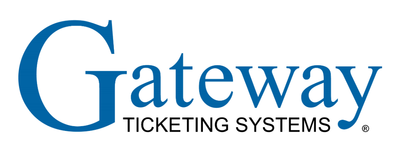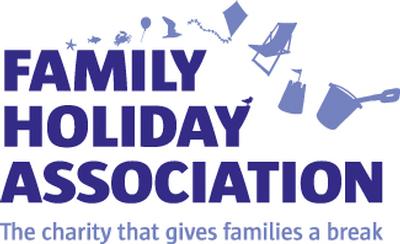ALVA News
THE UK’S TOP VISITOR ATTRACTIONS OFFER ONLINE EASTER ACTIVITIES - From Egg-cellent eggs-periments to recipes, to church services to virtual egg hunts -
10 April 2020:
While people are relaxing over the Easter break, members of ALVA (Association of Leading Visitor Attractions) are offering a variety of “virtual” Easter activities to keep the old and young busy from the comfort of their own homes. These range from Egg-cellent eggs-periments at the Science Museum to Cathedral services at Durham Cathedral to cookery suggestions from English Heritage and Waddesdon Manor and a Great Easter Scavenger Hunt from the National Trust.
Bernard Donoghue (Director) of ALVA, explains; “Although all our members are currently closed, they are working hard to keep at the forefront of people’s minds through a variety of imaginative and creative digital experiences that can be enjoyed during the Easter Holidays.”
He continues: “Our members have always acknowledged how important their local community is to their attraction, so we were pleased to hear that 100s of Easter Eggs bought by Chatsworth for their planned Easter Egg Hunts are not going to waste – they are donating them to two local food banks in Chesterfield and Matlock.”
Hands-on experiences are being offered online by Waddesdon Manor, who have put together lots of family fun activities ranging from their historic chocolate cake recipe to origami and pop up Delft Easter card activity sheets, The National Trust for Scotland offers Easter activities, crafts and recipes, including a popular Scottish Animals World Cup challenge, and The Fitzwilliam Museum is encouraging you to look at their collection for inspiration with their Springtime Colour Hunt. London Transport Museum is offering downloadable Easter family activities themed around a vintage cartoon character called 'Billy Brown' who was used to instruct people on how to behave when using public transport during WWII. The Southbank Centre has several Easter blogs on the Family page of their website and on their social channels and Forestry England’s Blog will feature on 7 indoor Easter activities to connect the kids with forests and How to bring the wellbeing benefits of the forest into your home. The National Trust explores Easter traditions of the past and present such as egg rolling and offers ideas for families such as craft and activities to do in the garden as well as a Great Easter Scavenger Hunt, where families, even those who are apart, can join in, find particular objects around their homes and gardens - such as 'something to make a cosy nest' or 'find an Easter recipe to make' - and share their photos and activities via the charity’s social media channels using @nationaltrust. Glasgow Museums will be offering short ‘how to make’ films on their Facebook page including how to make a woolly Easter chicks on Good Friday.
At Durham Cathedral, they have a packed schedule of digital services over Holy Week and Easter. This includes a pre-recorded service of The Three hours on Good Friday from 12 noon- 3pm and two Facebook live-stream services on Easter Day; a 5am Eucharist, a special service at 11.15am led by the Bishop of Durham and an Evensong service at 3.30pm. Additionally, they have uploaded some fun Easter themed worship activities for children, including a ‘make your own Easter garden’ activity, which is a wonderful way for children to learn the Easter story while they’re staying at home.
Cooking is also a popular subject matter at English Heritage as part of their Easter Heritage At Home. On Good Friday at 7pm, their award-winning Victorian Cook Mrs Crocombe from Audley End (Essex) releases a new film and recipe showing viewers how to make Saffron Buns, a historical alternative to the Hot Cross Bun.
And a new Easter English Heritage Podcast episode will explore a seasonal favourite – The history of the hunt: How an Easter tradition was hatched will be available. It’s almost Easter, when egg hunts traditionally take place in gardens across the country, but have you ever wondered how and why this curious seasonal tradition started? Join presenter Charles Rowe and English Heritage’s senior properties historian Dr Andrew Hann for an examination of why eggs were first hidden for children to find, how the tradition has since evolved, and when natural eggs were replaced by the chocolate variety we’re more familiar with today.
Episode 54 of the English Heritage podcast will be released at 9am on Thursday, 9 April 2020 via the English Heritage Website (and all major podcast suppliers) - There is also be a range of 'how to' videos including one on how to decorate eggs for Easter and make other things and ‘history in focus’ articles examining why we have Easter eggs, and other Easter customs.
The Science Museum has a downloadable Kitchen Science experiment booklet featuring hands-on science experiments using everyday items from the kitchen cupboard including the 'Stupid-egg' trick, perfect for Easter weekend. The aim of the experiment is to drop eggs into glasses without touching them (this can also be performed using juggling balls). The booklet also features experiments to make your own corn-flour slime, blow up a balloon using baking soda, create a volcanic eruption using fizzy drinks or make your own lava lamp using vegetable oil.
Castle Howard (North Yorkshire) is lived in by the Howard family, so while the house as an attraction is closed the Howard’s are still living there. Nick Howard is going to do an instagram takeover for Easter weekend which will involve a live stream from the chapel so that viewers can enjoy the experience of seeing the chapel set up for Easter with music playing and see the light go down outside through the stained glass windows.
Zookeepers at ZSL London Zoo have an arranged Easter egg hunt for meerkats. Painting fresh eggs in eye-catching colours, dedicated keepers - who are still working to look after the Zoo’s animals - hid the tasty treats for Frank, Dracula, Archie, Penelope, Timon, Aurora and Meko to find amongst the sand and rocks in their home. Other virtual animal activities over the long weekend include Longleat’s Virtual Safari, which has already attracted a record online audience
of more than half-a-million people in just three days.
The 30-minute tour, narrated by Kate Humble, went live online at 10am on Saturday, coinciding with the normal opening time of the famous Wiltshire wildlife attraction.
Chester Zoo will be hosting 'Live Virtual Zoo Day 3' on Good Friday. People can watch via the Zoo’s Facebook or YouTube pages from 10am until around 3:30pm.
Starting over the weekend, a digital dinosaur festival is taking place at the Natural History Museum - which includes try it at home Dinosaur activities such as: How to make your own hatching dinosaur egg; How to make an origami T. rex and How to make dinosaur footprint cookies.





















on Facebook
on Twitter